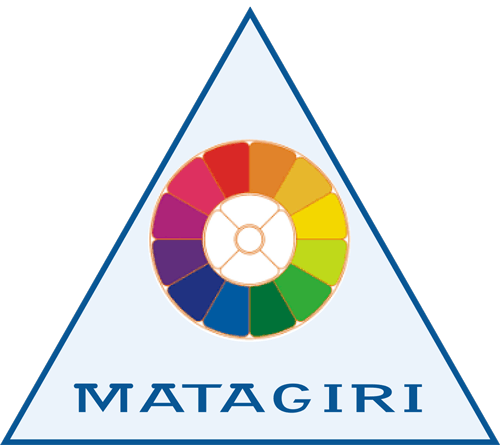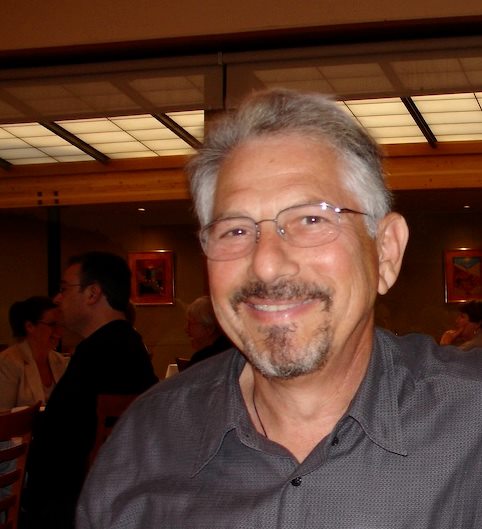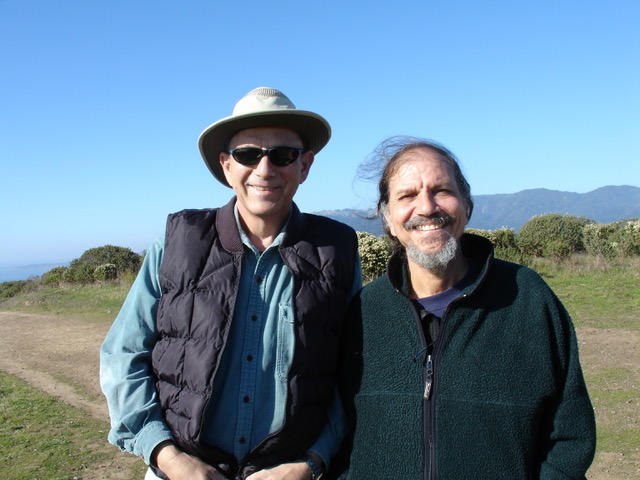Richard Howard Stein, MD, father, psychiatrist, Jungian analyst, devotee of Sri Aurobindo and The Mother, died in his home on Thursday, January 23 at the age of 74 after more than five years fighting thyroid cancer that had metastasized to his lungs, spine and brain. Richard navigated with great integrity and composure 14 years of serious illness. In 2006, he had been diagnosed with leukemia and underwent two years of intensive treatment for that condition.His thyroid cancer was discovered in April of 2014 and he subsequently had many treatments and surgeries in the following years.
Richard was a beloved teacher of Jungian psychology and the integral yoga of Sri Aurobindo and The Mother. His keen and agile mind could synthesize multiple concepts with great feeling. His sharp and dry humor was often missed but the depth of his thinking and feeling was always moving.
Born in Boston, Massachusetts to Estelle Berzon and Tobias Stein in 1945, Richard was the middle of three sons. When very young his family relocated to Montgomery, Alabama where his father was a physician at the Veterans Administration Hospital. Richard grew up in the midst of the civil rights tensions and was greatly influenced by Dr. M. L. King. His family were active supporters of the civil rights movement.
Richard attended the University of Alabama in Tuscaloosa majoring in chemistry and went to medical school after just 3 years in college on full scholarship to the University of Alabama Birmingham. He completed his BS with honors after his first year of medical school. During summers he concurrently pursued a PhD in biochemistry in cancer research at the National Institute of Health (NIH). In 1971 Richard received his medical degree which ended with an elective rotation at Stanford University. This pivotal moment brought him to California in the summer of 1971. He completed his internship at Kaiser Hospital Oakland (1971-1972) and a psychiatric residency at Napa State Hospital 1972 – 1973. It was during this latter time that he yearned for something more subjective and spiritual than medical psychiatry offered.
In the late fall of 1973, at the encouragement of close friends involved in the yoga, Richard traveled to India to explore the spiritual teachings of the great teacher, mystic and spiritual philosopher, Sri Aurobindo. It was there that he had discovered a deep spiritual connection with Sri Aurobindo and The Mother that surpassed his intellectual knowledge and would forever shape his life going forward. It was also there in Pondicherry that he met a Zurich trained Jungian analyst who helped him see the work of Jung as a bridge from psychiatry to Eastern spirituality.
Richard returned to California in early 1974 and did a second residency at the innovative and Jungian influenced Diabasis Clinic, part of UCSF (University of California San Francisco), training with Drs. John Perry and James Bugenthal. In 1976 he set up his private practice as a psychiatrist and entered analytic training at the San Francisco Jung Institute in 1978. Richard was faculty at the California Institute of Integral Studies (previously California Institute of Asian Studies) from 1977 through 1988 as a professor of Jungian psychology and Integral Psychology. He was certified as a Jungian analyst in May, 1984. For many years he was very involved in the San Francisco Jung Institute teaching, mentoring, and offering public programs. His particular focus was the integration of spirituality and Jungian psychology. A gifted teacher and writer, Richard always studied the links between Sri Aurobindo and Jung.
He remained a devotee of Sri Aurobindo and The Mother throughout his life and traveled back to India in the late 70’s and again in 1997.Richard was also an avid nature lover and enjoyed backpacking, wilderness adventures and hiking. His time in nature was a deep and essential part of his inner life. He shared this intimate connection with nature most profoundly with his immediate family and it became a grounding bridge to his deep spirituality.
He is survived by his son Ben, daughter Ilana, friend and ex-wife, Jan Edl Stein, and brothers Dr. Roy Stein and Dr. Robert Stein.
His immediate family will host a public memorial/Celebration of Life at the Mill Valley Community Center, 180 Camino Alto, Mill Valley, on Sunday, March 22, 2020 at 2:00 pm.
Family and close friends will offer glimpses into his life. Musicians Silvia Nakkach and Todd Boston will offer musical interludes as Richard was a connoisseur of fine music and a great fan of Indian devotional music. A catered reception follows. If you will attend, kindly send an RSVP email to (jan@janedl.com).
In memory of Richard, and in lieu of flowers and other gifts, donations in his memory may be made to either the Sri Aurobindo Ashram in Lodi: Sri Aurobindo Sadhana Peetham
(SASP), 2621 W Hwy 12, Lodi, CA 95242, and/or to Holos Institute Ecopsychology Programs, 312 3rd Avenue, San Francisco, CA, 94118.
REMINISCENCES OF MY FRIEND RICHARD STEIN by Steve Webman By 1972, I had known Richard for a few years. We had been keeping in casual contact from the time we met in New York when he was still in med school and I in grad school. By 1971 we were both in the Bay Area. I had started on a spiritual path inspired by reading Sri Aurobindo. Richard was doing internship at Kaiser in Oakland. Toward the end of his internship, when he was under a little less pressure, and before he started a psychiatric residency program at Napa State hospital, he came to share a house with me and Ken Gilbert in Berkeley. That’s when I really got to know him. Ken was also trying to practice Sri Aurobindo’s yoga. We had a meditation room there which had a powerful presence, perhaps in spite of our many impurities. That would have been Richard’s first introduction to Sri Aurobindo. Richard moved to Napa to be closer to the residency program, but we visited each other quite regularly over the next months until I went to India in December of 1972. I was writing to some of my
friends over that year about the experience of being in India and in the Ashram. At some point in October or maybe even November of 1973, I got a letter from Richard saying that he was coming to visit. He had left the program at Napa which had collapsed in some sort of dysfunction and was looking for a way to anchor himself. He later told me that he decided to come on a sort of spur of the moment decision resulting from a dream or an inner experience that told him to hurry up if he wanted to meet the Mother.
He must have arrived on the 16th or even the 17th of November. We spent the day together walking around Pondicherry and I noticed how at home Richard seemed to feel here, more so than I did when I first arrived. That night I played a piece of Sunil’s music on a tiny cassette player and then he went back to the room he had taken at Park Guest house which was not far from mine. So it was his first night in Pondicherry when this happened. Sometime after midnight I was woken up by my friend and neighbor at Park, Jean Finney. She said the Mother had passed and everyone was going to the Ashram. I then went to get Richard. He was already awake sensing a commotion. At the Ashram, streams of people were forming a line to view the Mother’s body. I think we stayed there until dawn when more of the general public started coming to pay their respects. Her body was placed in the Samadhi above Sri Aurobindo’s a couple of days later. It was a unique time to first experience the Ashram community.
The following weeks were very intense for the whole community. Richard stayed for at least 3 months. During that time the spiritual atmosphere in the Ashram was practically physical and he absorbed it quite naturally. While he was in Pondicherry he was also introduced to the works of Jung and dream work.
There was a woman here who had studied at the Jung centre in Zurich. She told him about dream work. I think the Ashram library also had some of Jung’s works, so he probably started reading Jung here too. Years later when he was focusing on analysis and we used to discuss its relation to Sadhana, he said that he felt he needed to do that kind of work on the subconscious in order to clear the way for Sadhana. He was too humble to add that he had extraordinary capacity as an analyst himself and was giving service by helping others from his unique perspective.
Over the next forty years, Richard only came to Pondicherry a few times.
I remember one time when he came; probably it was in the late 1970s or early 1980s. Sunil’s mother had had a stroke some months before. She was in a semi conscious state.They took care of her at home in a room downstairs in the Art House where Sunil’s studio was also located. During that time Sunil was always with her before he went upstairs to compose. He knew Richard from his first visit and knew he was a doctor. In fact he, like many in the ashram at the time, had a somewhat dim view of psychiatry. He had urged Richard (who had not yet decided if he would go back to psychiatric residency or medicine) to go for medicine. When Richard came to meet him in that room with his mother, Sunil asked what he could do for her, thinking there was some treatment Richard might know of which the doctors here were not aware. Richard answered “love”. I think Sunil might have said it was the wisest thing any doctor had ever said to him. In any case he was then sure that Richard had chosen the right path and reminded me of that several times later.
I didn’t start visiting America regularly until the early 1990s from which time I would go every year and spend some days during the visit with Richard and his family. It was during this period I think that our friendship really got deeper. We did talk about Yoga and Sadhana but it wasn’t incessant or even a main topic of conversation. It was just the sense of a shared path and shared interests that deepened even as his health became one crisis and then another. Our practice of yoga was different and we both recognized and respected that. Richard, through all his life, was what they call the smartest guy in the room. He had great capacity for absorbing information, interpreting and remembering it. But when it came to the spiritual practice, he had a strong pull to the devotional and non-mental side. My approach was always filtered more through the mind. I think we may have complemented each other through that friendship. I will greatly miss him.


